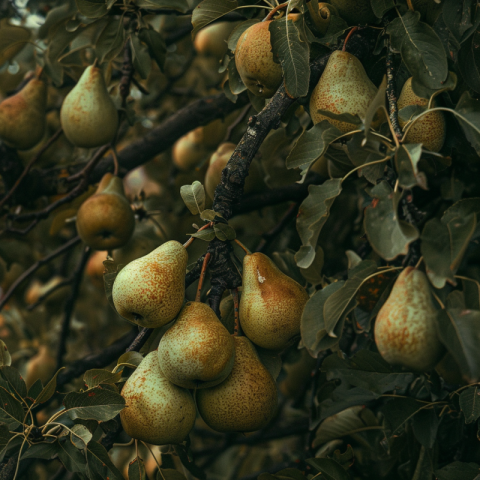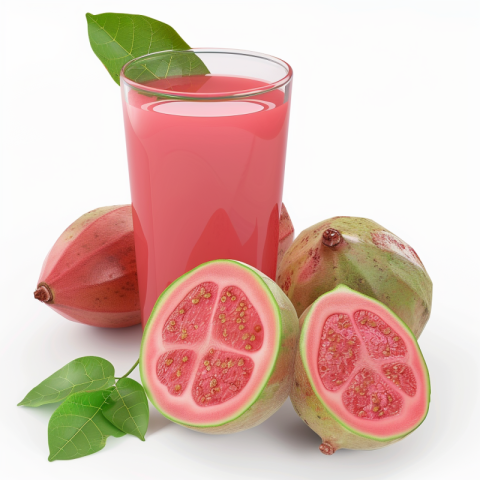











Fruits: Nature's Sweet and Nutritious Bounty - A Guide to Nature's Candy
Fruits, the sweet and fleshy products of flowering plants, are not only delicious but also essential components of a healthy diet. They are packed with vitamins, minerals, fiber, and antioxidants, offering a wide range of health benefits. From the vibrant hues of berries to the exotic flavors of tropical fruits, the world of fruits provides a feast for the senses and contributes to overall well-being.
1. What Defines a Fruit? The Botanical Perspective
- Botanically, a fruit is the mature ovary of a flowering plant, typically containing seeds.
- Fruits develop from the flower after pollination and fertilization.
- They serve as a means of seed dispersal for the plant.
- This definition includes many foods commonly considered vegetables, such as tomatoes, cucumbers, and avocados.
2. Classifying Fruits: A Diverse and Colorful Family
Fruits can be classified in various ways, including by their botanical structure and culinary uses:
- Simple Fruits: Develop from a single ovary in a single flower.
- Berries: Fleshy fruits containing many small seeds, such as strawberries, blueberries, and raspberries. Note that botanically, bananas and tomatoes are also berries.
- Drupes: Fleshy fruits with a single hard stone or pit that encloses the seed, such as peaches, plums, cherries, and olives.
- Pomes: Fruits with a core that contains the seeds, surrounded by a fleshy edible layer, such as apples and pears.
- Aggregate Fruits: Develop from a single flower with multiple ovaries, such as raspberries and blackberries.
- Multiple Fruits: Develop from a cluster of flowers, such as pineapples and figs.
- Culinary Classification: In cooking, fruits are typically classified by their flavor profile (sweet or tart) and how they are used in dishes (desserts, snacks, or savory meals).
3. Nutritional Powerhouses: The Health Benefits of Fruits
Fruits are packed with essential nutrients that contribute to overall health:
- Vitamins: Fruits are rich sources of various vitamins, including vitamin C (citrus fruits, berries), vitamin A (mangoes, apricots), and vitamin K (kiwi, avocado).
- Minerals: They provide essential minerals like potassium (bananas, melons), magnesium (avocados, bananas), and iron (some dried fruits).
- Fiber: Fruits are an excellent source of dietary fiber, which aids digestion, promotes satiety, and helps regulate blood sugar levels.
- Antioxidants: Many fruits contain antioxidants, compounds that protect cells from damage caused by free radicals. These include flavonoids, carotenoids, and others.
- Water Content: Most fruits have a high water content, helping with hydration.
4. Fruits and Disease Prevention: A Boost for Well-being
Consuming a diet rich in fruits has been linked to a reduced risk of chronic diseases:
- Heart Disease: Fruits can help lower blood pressure, improve cholesterol levels, and reduce inflammation, all of which contribute to heart health.
- Type 2 Diabetes: The fiber in fruits helps regulate blood sugar levels, and their relatively low glycemic index makes them a good choice for people with diabetes.
- Certain Cancers: Some studies suggest that the antioxidants and other compounds in fruits may help protect against certain types of cancer.
- Obesity: Fruits are low in calories and high in fiber, which can help with weight management.
5. Enjoying Fruits: Fresh, Frozen, Canned, and Dried
Fruits can be enjoyed in various forms:
- Fresh: The most nutritious way to consume fruits, offering the maximum amount of vitamins, minerals, and fiber.
- Frozen: Frozen fruits are a convenient and healthy option, often just as nutritious as fresh.
- Canned: Canned fruits can be a convenient alternative, but they may contain added sugar or syrup.
- Dried: Dried fruits, such as raisins, apricots, and cranberries, are a concentrated source of nutrients and fiber, but they are also higher in sugar and calories than fresh fruits.
- Juice: While fruit juice can provide some vitamins and minerals, it is often high in sugar and lacks the fiber found in whole fruits.
6. Fruits Around the World: A Global Cornucopia
Different cultures have their own unique fruit traditions and preferences:
- Tropical Fruits: Mangoes, pineapples, bananas, papayas, and guavas are popular in tropical regions.
- Temperate Fruits: Apples, pears, peaches, plums, and berries are commonly grown in temperate climates.
- Citrus Fruits: Oranges, lemons, limes, grapefruits, and mandarins are prized for their vitamin C content and refreshing flavor.
- Exotic Fruits: Dragon fruit, rambutan, mangosteen, and durian are examples of fruits that are less common in some parts of the world but are gaining popularity.
7. Incorporating Fruits into Your Diet: Delicious and Easy Ways
There are countless ways to enjoy fruits as part of a healthy diet:
- Eat them fresh: As a snack, in salads, or as a dessert.
- Add them to smoothies: For a nutritious and refreshing drink.
- Use them in baking: Fruits can be added to muffins, cakes, pies, and other baked goods.
- Make jams and preserves: To enjoy the taste of fruits year-round.
- Grill or roast them: To bring out their natural sweetness and create a unique flavor.
8. The Future of Fruits
- With a growing global population, there is an increasing need to produce fruits more efficiently and sustainably.
- New varieties of fruits are being developed that are more resistant to diseases and pests, and that have improved nutritional profiles.
- There is a growing interest in heirloom and less common fruit varieties.
Conclusion:
Fruits are a delicious and essential part of a healthy diet, providing a wealth of nutrients and offering a wide range of flavors and textures. From the familiar apple to the exotic dragon fruit, the world of fruits is a vibrant and diverse landscape waiting to be explored. By incorporating a variety of fruits into our daily meals and snacks, we can nourish our bodies, support our well-being, and enjoy the sweet and refreshing taste of nature's bounty.
Fruits, types of fruits, list of fruits, fruit nutrition, fruit benefits, fruit recipes, healthy fruits, berries, citrus fruits, tropical fruits, apples, bananas, oranges, strawberries, blueberries, mangoes, pineapples, grapes, watermelon, peaches, plums, cherries, vitamins in fruits, minerals in fruits, antioxidants in fruits, fiber in fruits, fruit salad, fruit smoothie, fruit juice, dried fruits, frozen fruits, canned fruits, growing fruits, fruit trees, organic fruits, farmers market, produce.

